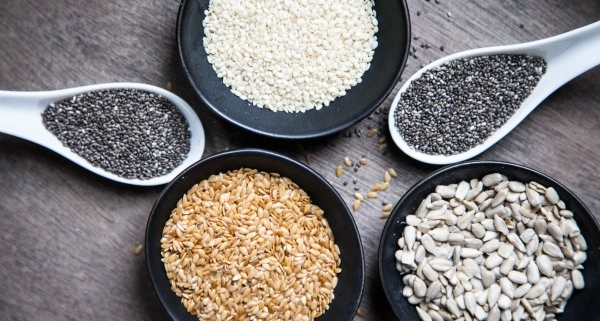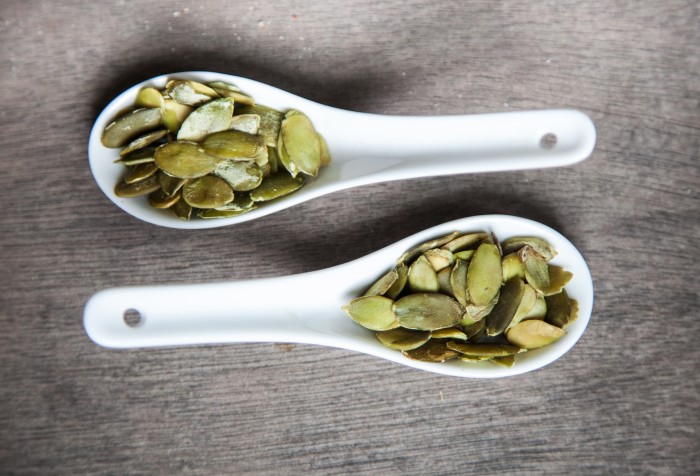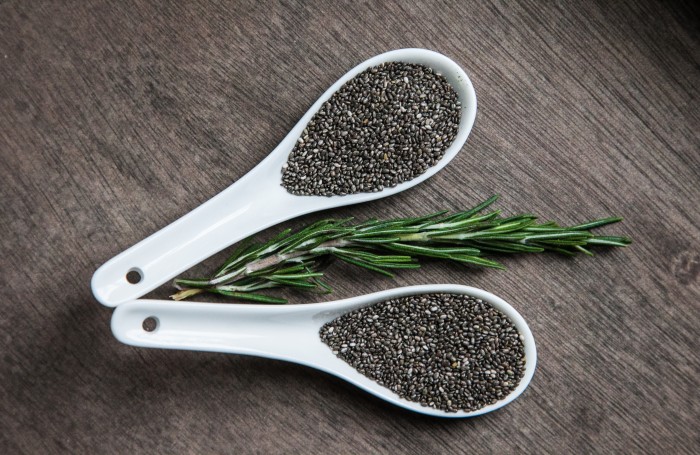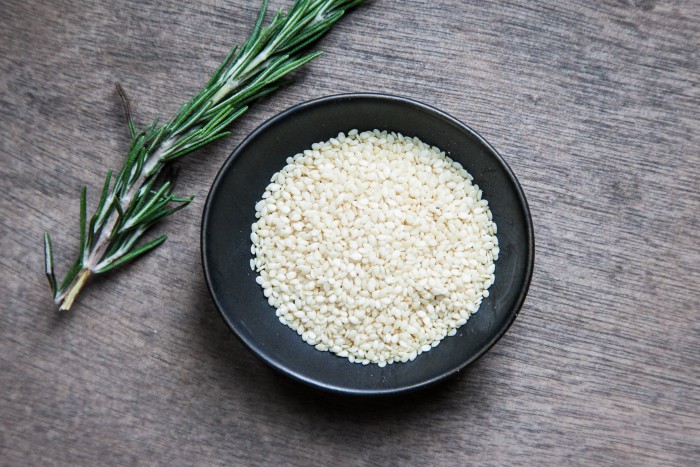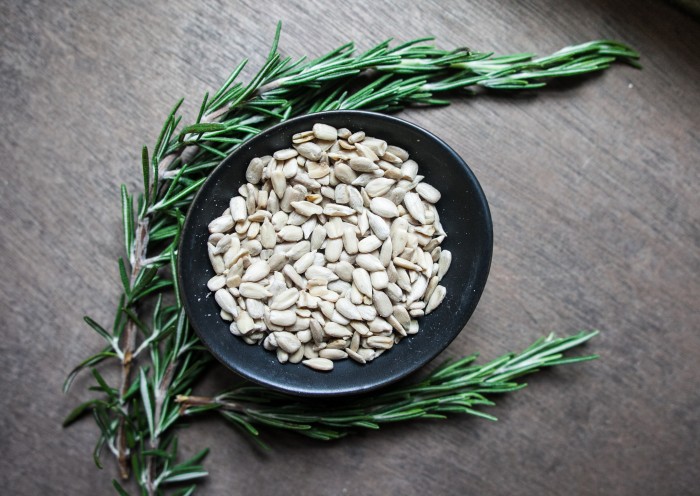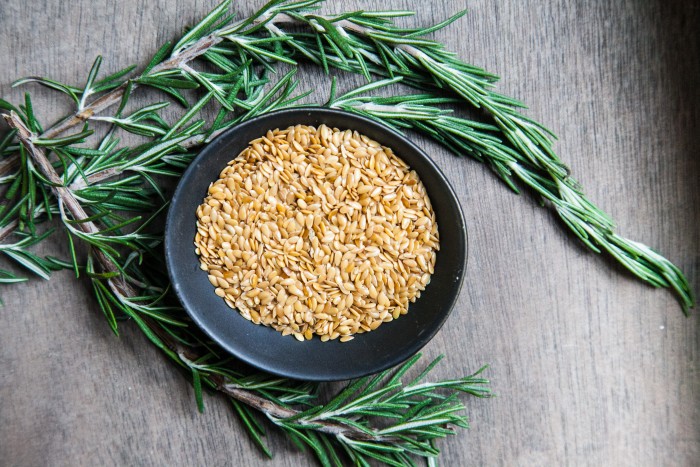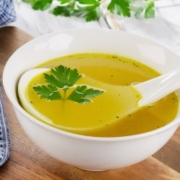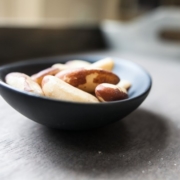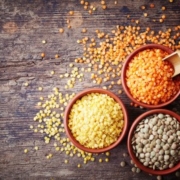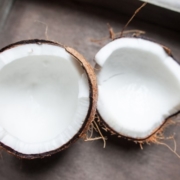Pumpkin Seeds:
A quarter cup of pumpkin seeds contains half the recommended daily amount of magnesium. This mineral is important for proper bone formation, relaxation of blood vessels, and the production of proteins. These seeds are also a rich source of zinc (that supports immune function) and a rich source of omega-3 fats. They are an important food for men and prostate health. In addition, they are loaded with tryptophan, an amino acid that your body converts to serotonin, which then turns into melatonin for a restful night’s sleep. I like to throw these in salads or in with roasted vegetables.
Serving Size: ¼ cup
Calories: 190
Fat: 16g
Carbs: 1g
Protein: 10g
77% fat, 2% carbs, 21%protein
Chia Seeds:
Chia seeds are high in fiber, omega-3 fatty acids, calcium, magnesium, manganese, and phosphorous. They are loaded with antioxidants that fight free radicals, which can damage molecules in cells and contribute to aging and cancer. Chia seeds absorb 12 times their weight in water because of their high fiber content. This results in a gel like substance that expands in your stomach. You will feel fuller and consume fewer calories, and it will decrease the absorption of food. Anything that contributes to slower food absorption will help with blood sugar swings. I like to throw them in my smoothies, on top of Greek Yogurt, or even sprinkle them on a salad. I also add them to homemade muffins and gluten free bread.
They can be found at any grocery store and online.
Serving Size: 1 tablespoon
Calories: 60
Fat: 3g
Carbs: 5g
Protein: 3g
46% fat, 34% carbs, 20% protein
Sesame Seeds:
Sesame seeds are high in phytosterols, copper, manganese, calcium, magnesium, iron, B1, selenium, and zinc. They contain two unique substances: sesamin and sesamolin. These are special, beneficial fibers called “lignans” that have been shown to lower cholesterol levels, prevent high blood pressure, and increase vitamin E levels. Sesamin has been shown to protect the liver from oxidative damage.
– Copper provides relief from rheumatoid arthritis.
– Magnesium supports vascular and respiratory health.
– Calcium helps prevent osteoporosis, migraines, and PMS.
– Zinc is important for bone health.
– Phytosterols lower cholesterol levels.
I add these to homemade gluten free bread, to sautéed vegetables, to sautéed chicken or beef, or to my Greek yogurt.
Serving Size: 1 tablespoon
Calories: 52
Fat: 4.47g
Carbs: 2.11g
Protein: 1.6g
73% fat, 17% carbs, 10% protein
Sunflower Seeds:
Sunflower seeds are high in vitamin E, copper, vitamin B1, vitamin B6, magnesium, manganese, selenium, phosphorous, and phytosterols. Vitamin E is the body’s primary fat-soluble antioxidant, which means it travels through the body neutralizing those nasty free radicals that cause oxidative damage. Vitamin E also has anti-inflammatory properties that help reduce the symptoms of asthma, osteoarthritis, and rheumatoid arthritis.
– Phytosterols reduce cholesterol levels.
– Magnesium helps calm your nerves, muscles, and blood vessels.
– Selenium may improve detoxification, and is an important mineral for thyroid health.
I like to add these to homemade gluten free muffins and bread, add them to roasted vegetables with pumpkin seeds, or add them to salads.
Serving Size: ¼ cup
Calories: 170
Fat: 15g
Carbs: 6g
Protein: 7g
Flax Seeds:
Flax seeds are one of the most powerful plant foods, as there is evidence that they helps reduce the risk of heart disease, cancer, stroke, and diabetes. They are high in omega-3 fatty acids, which are good fats because they contain heart healthy benefits. They also contain lignans, which have estrogen and antioxidant properties. They contain both soluble and insoluble fiber. Due to this fiber content, they help alleviate constipation, improve blood sugar levels, and provide satiety.
I like to add flax seeds to my homemade gluten free breads, muffins, and crackers. I also add them to smoothies.
Serving Size: 3 tablespoons
Calories: 90
Fat: 8g
Carbs: 7g
Protein: 4g
62% fat, 24% carbs, 14% protein

